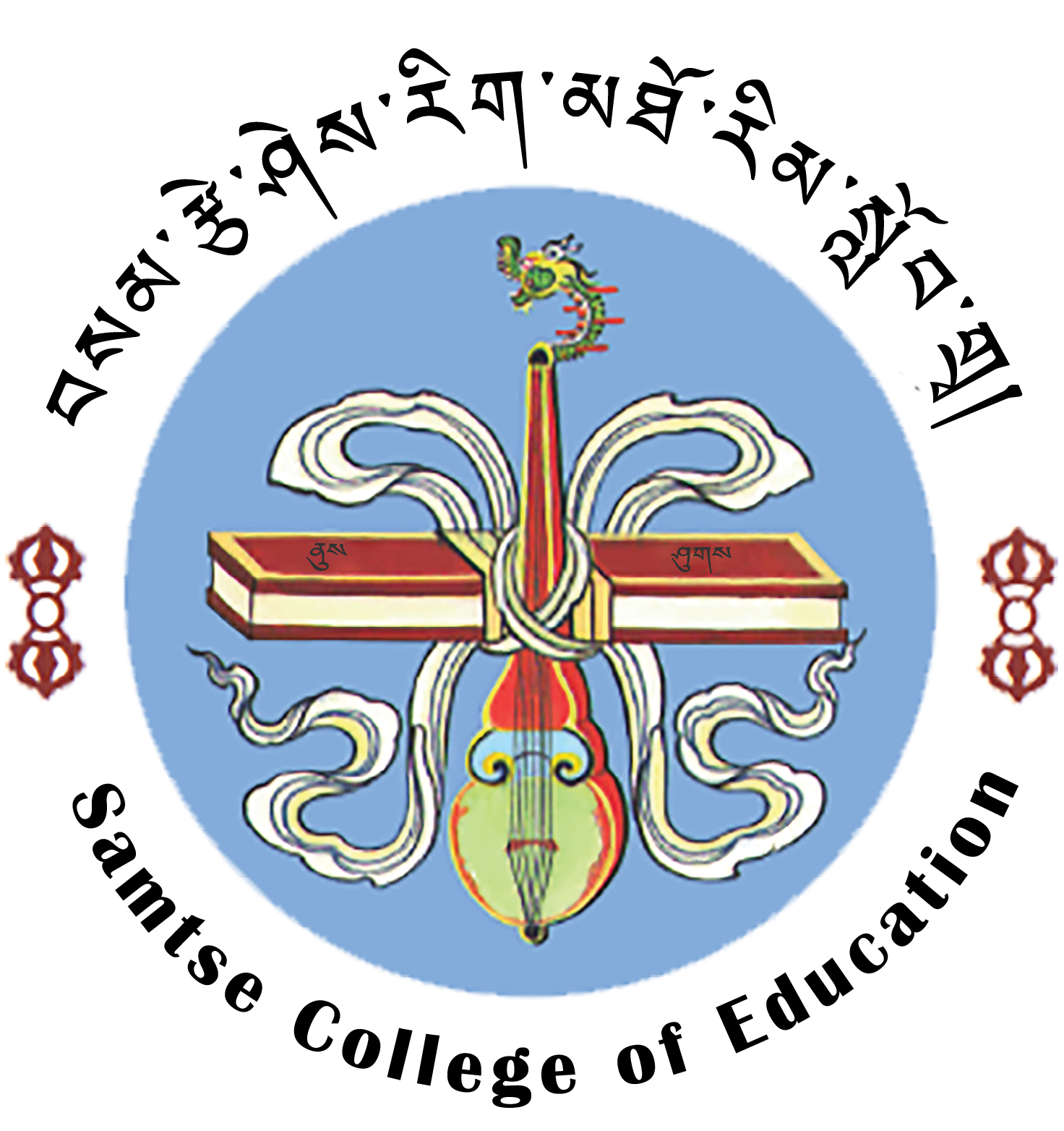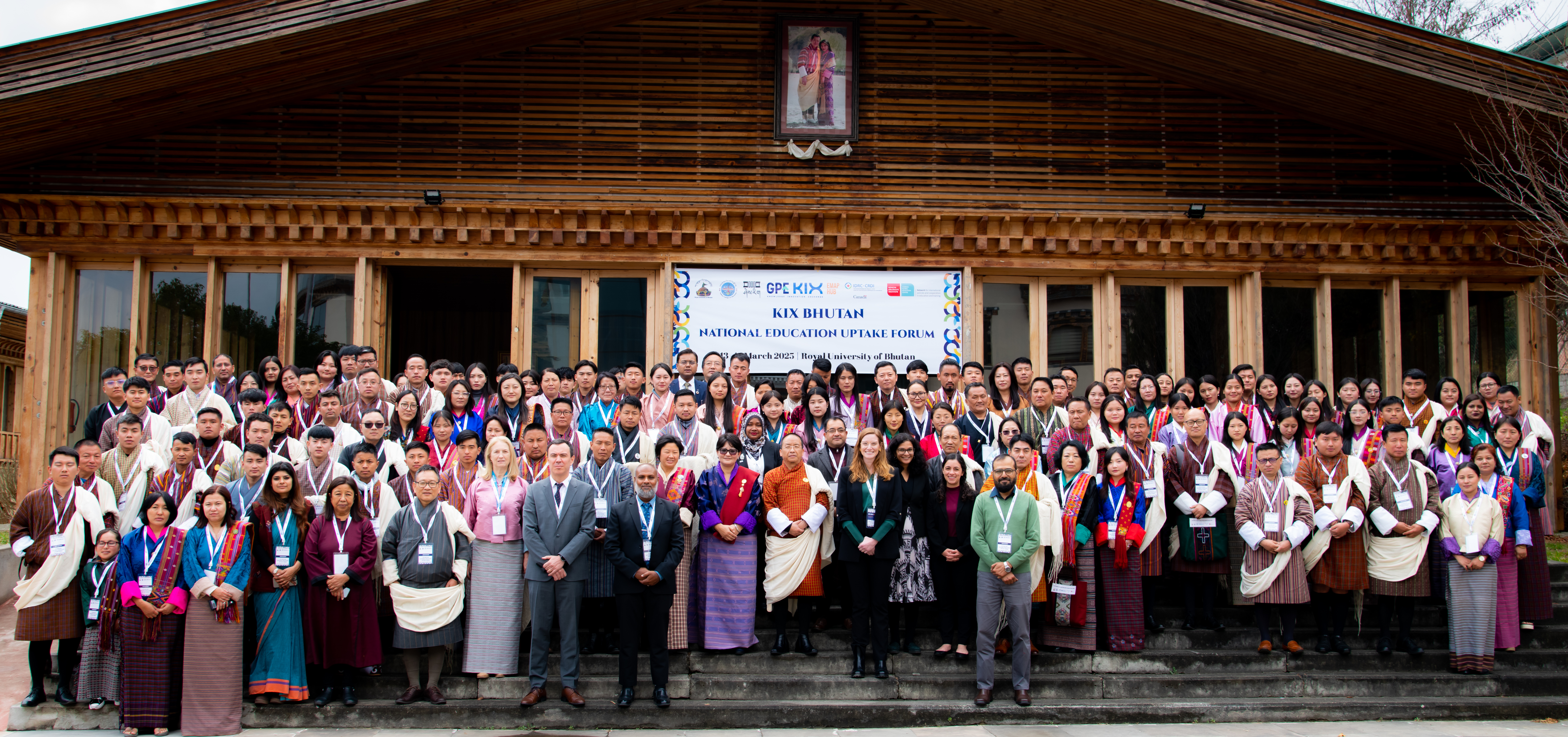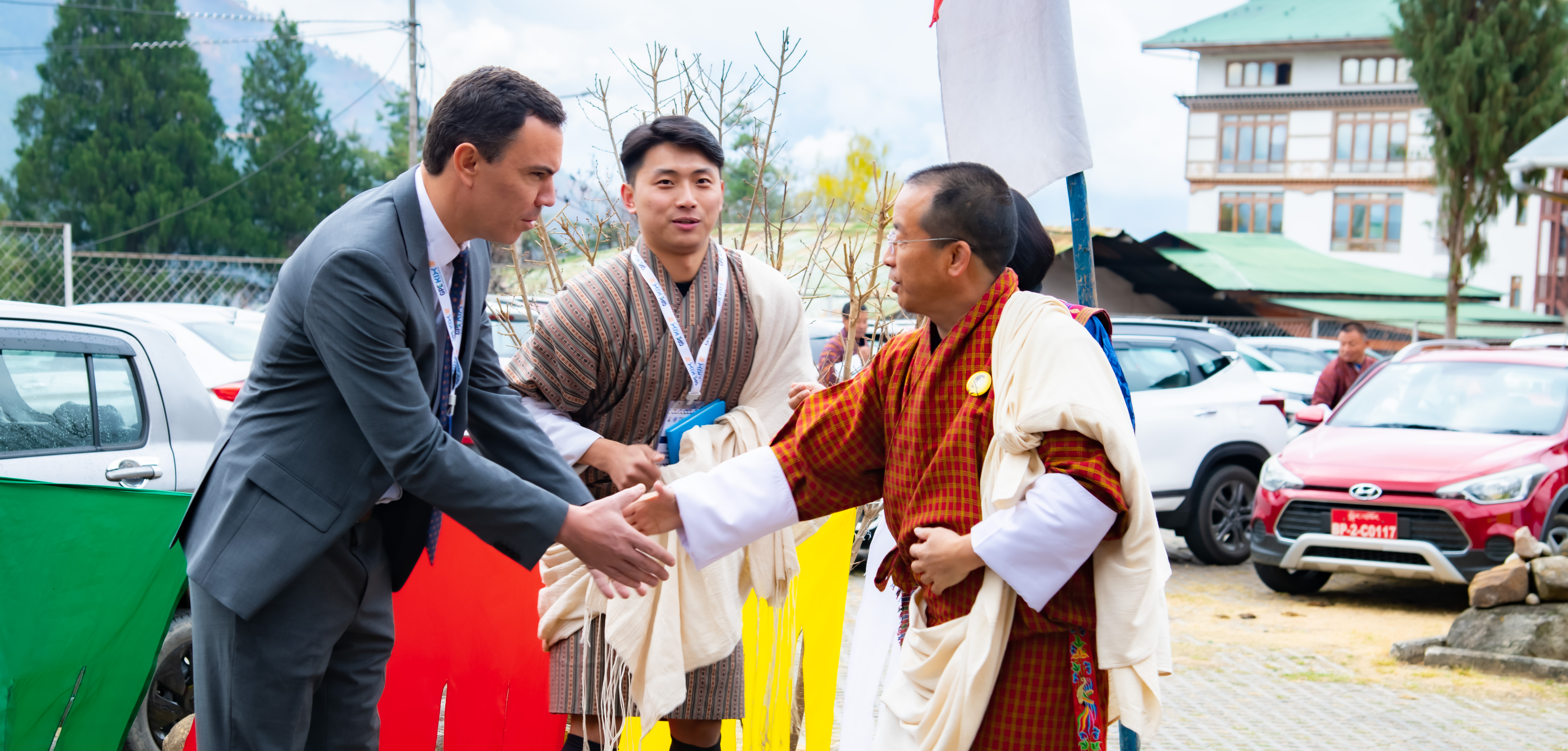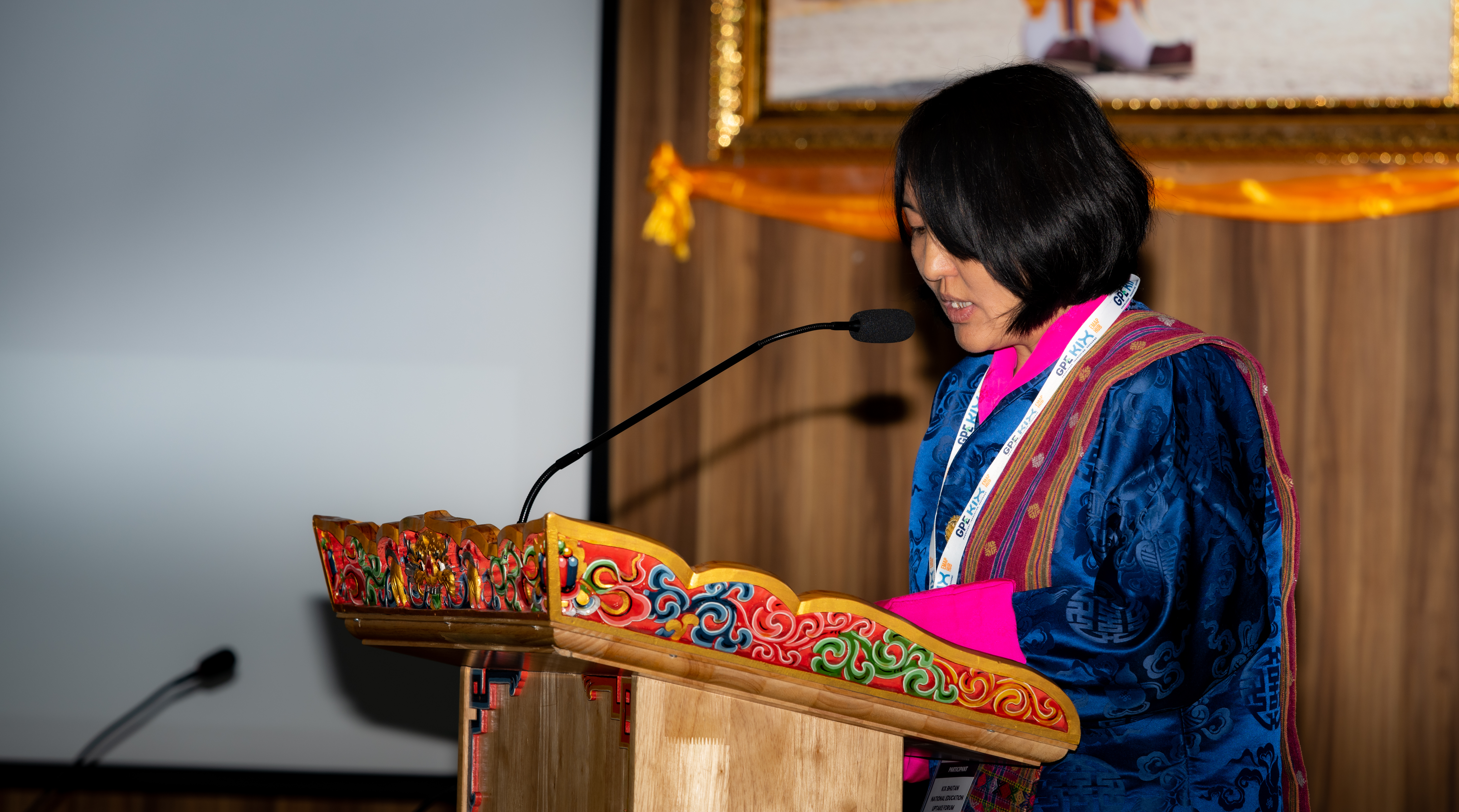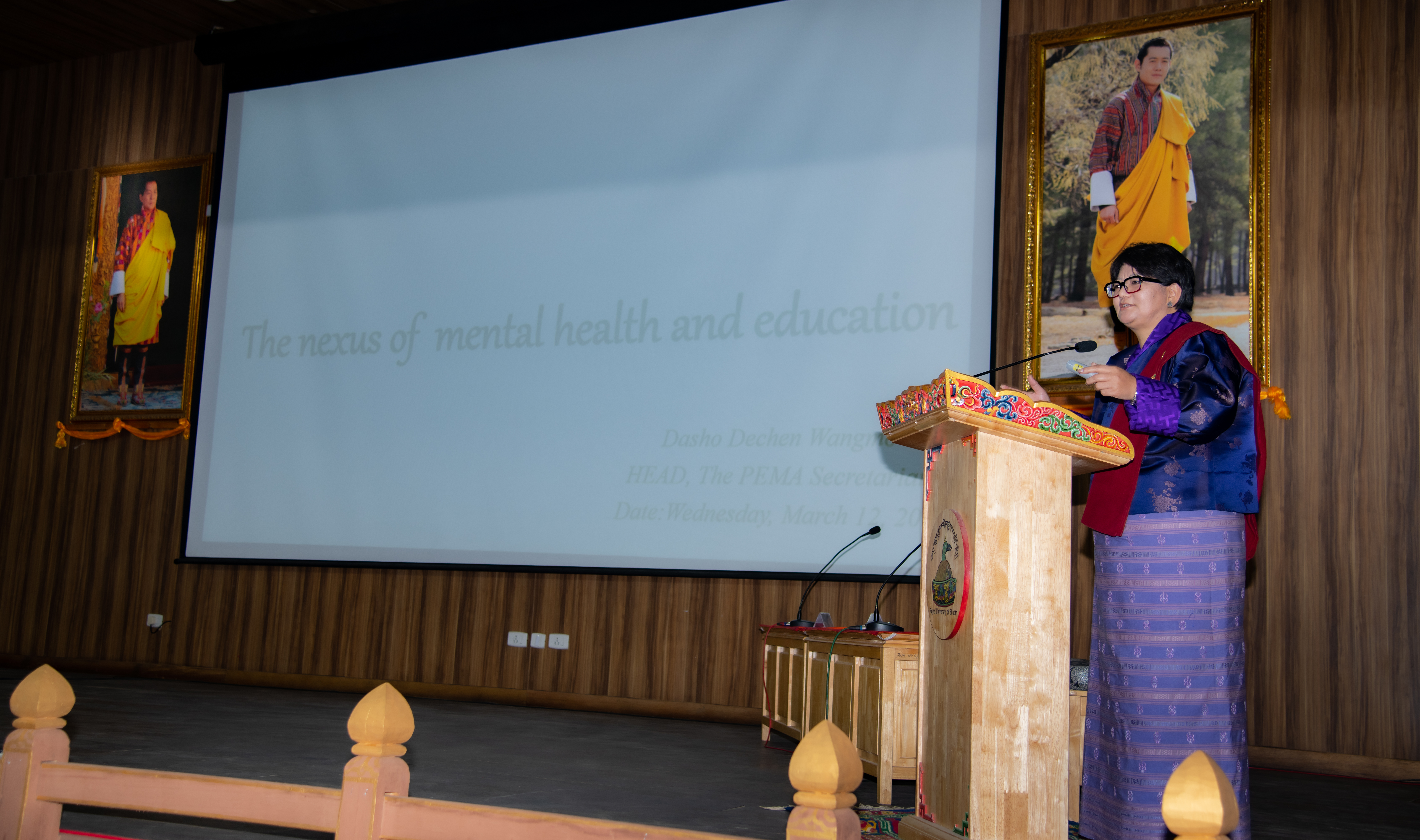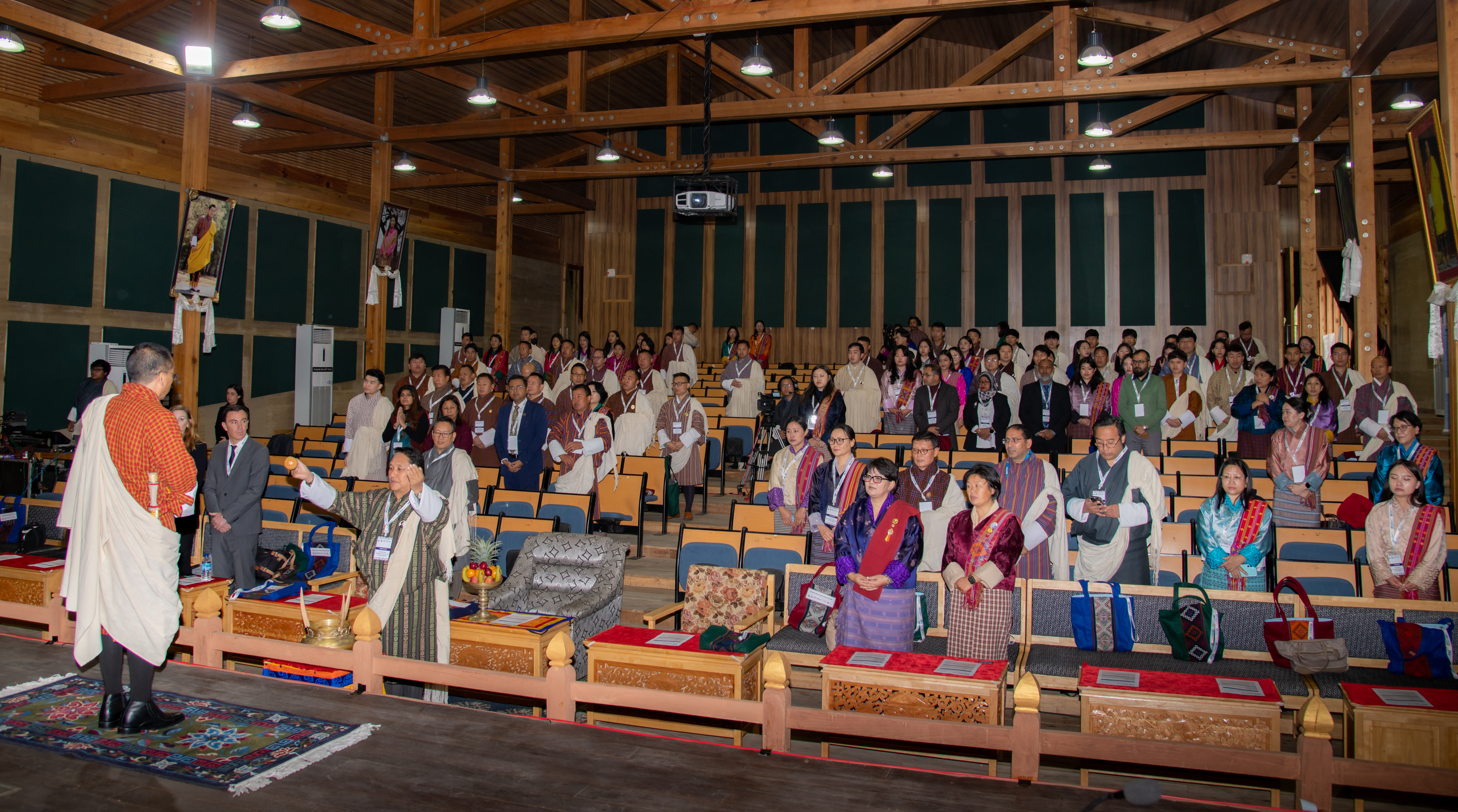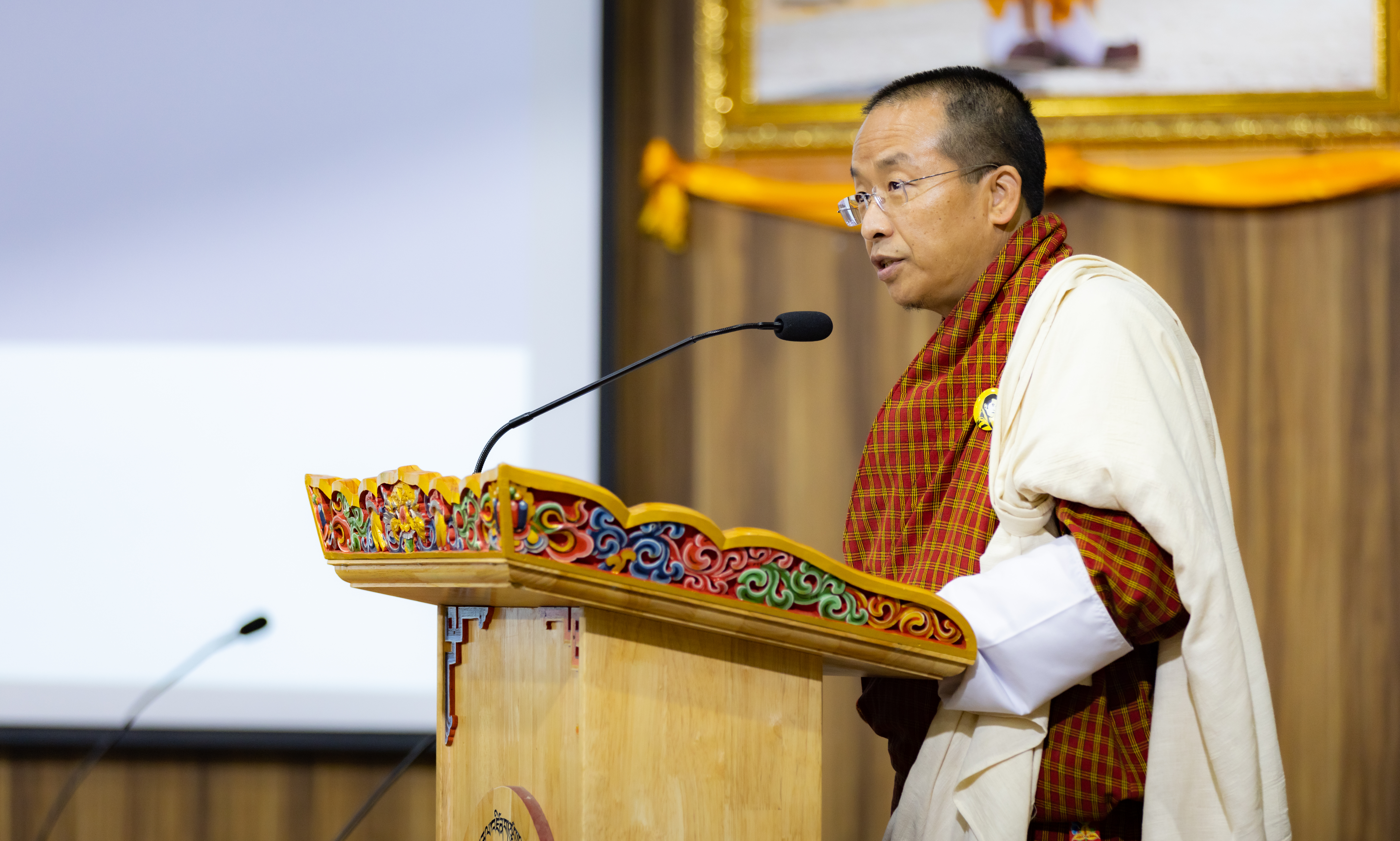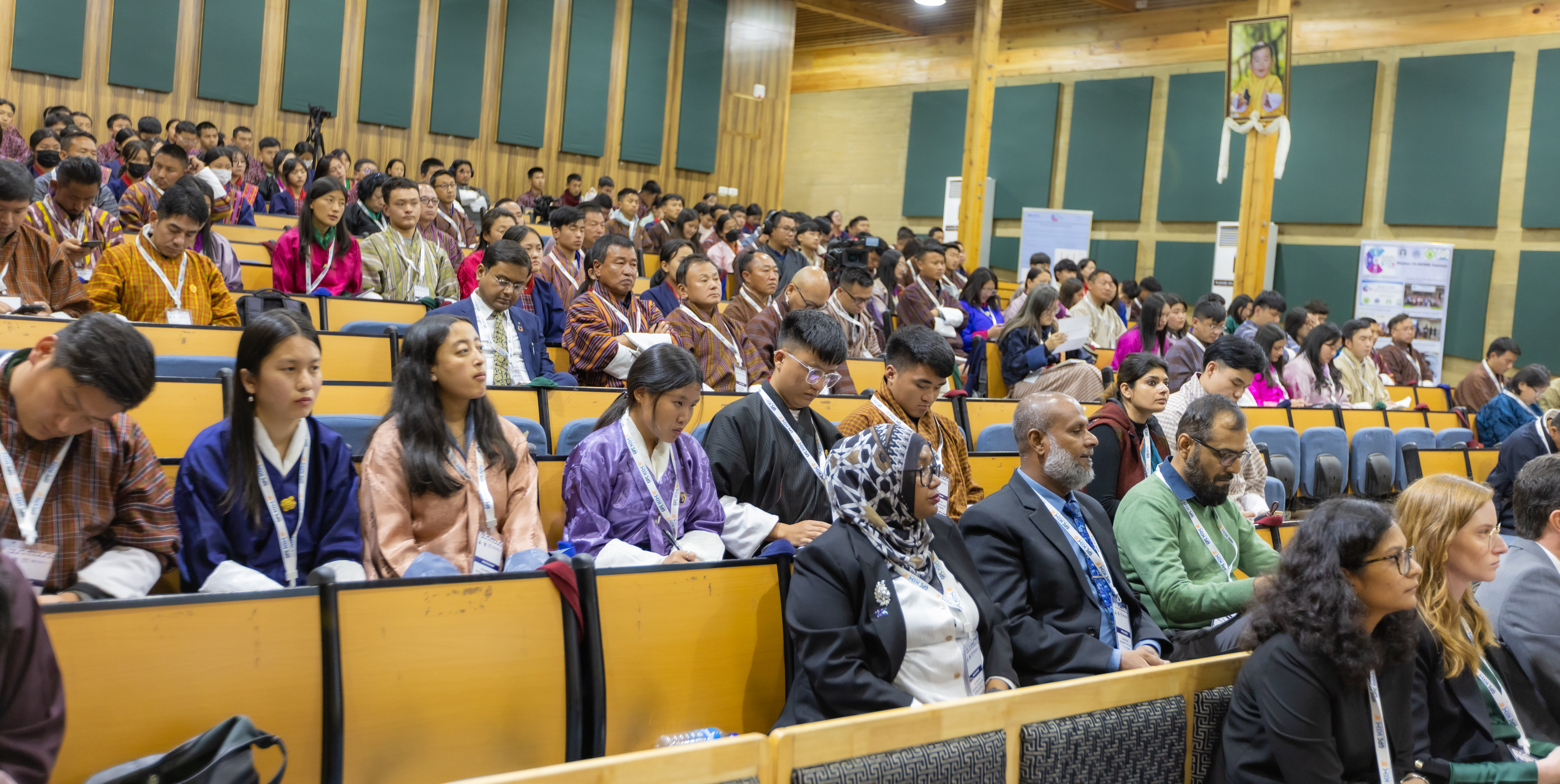KIX Bhutan National Education Uptake Forum 2025: A Collaborative Step Toward Transforming Education
The KIX Bhutan National Education Uptake Forum 2025, organized by Samtse College of Education (SCE) in collaboration with the Global Partnership for Education Knowledge and Innovation Exchange (KIX) and the Ministry of Education and Skills Development (MoESD), brought together educators, policymakers, researchers, and students to discuss Bhutan’s education system. Held at the OVC Hall, Royal University of Bhutan on March 13–14, 2025, the forum served as a platform for sharing research, exchanging ideas, and exploring innovative solutions for educational improvement.
The forum was inaugurated by Dasho Tshewang C. Dorji, Secretary of MoESD, who emphasized the need for research-driven policy reforms and inclusive education strategies. Dasho Dechen Wangmo of The Pema Secretariat also delivered a keynote on the importance of mental health in education, stressing the need for holistic support systems in schools. Dr. Kezang Sherab from Paro College of Education further contributed with a keynote on embodying the Four Immeasurable Qualities—Loving-Kindness, Compassion, Joy, and Equanimity—in teaching and learning practices, focusing on emotional well-being in education.
Day 1: Thematic Sessions on ‘Strengthening Learning’
The first day focused on thematic sessions that provided valuable insights into key
areas of education reform. The session “Strengthening Learning,” highlighted discussions on Early Childhood Care and Development (ECCD), curriculum models, and integrating 21st-century skills into Bhutan’s education system. Karma Galay, ECCD Specialist at DSE, MoESD, discussed the role of quality in ECCD centres, while Bhoj Raj, Curriculum Developer, explored the transition from the Competency-Based Approach (CBA) and Bhutanese Basic Education (BB) models to the Cambridge model. Additionally, Gembo Tshering from Paro College of Education and Dr. Saroj Thapa from Druk Gyalpo Institute shared their research on enhancing data utilization in decision-making within Bhutan’s education system through the Motherboard Integrated Education Management Information System (MIEMIS).
The emphasis on research was central to the forum, with presenters sharing data-driven insights aimed at informing future educational policies and practices. One student participant reflected, “This forum has opened my eyes to the challenges in our education system and the efforts being made to create positive change. It has inspired me to be more engaged in my own learning journey and to see research as a way to improve education for everyone.”
Day 2: Focus on Gender Equality, Social Inclusion, and Teacher Development
Day 2 began with a session on Gender Equality and Social Inclusion (GESI), moderated by Dr. Chencho Lhamu, Dean of Royal Thimphu College. Tshering Om Tamang from Samtse College of Education and Kinley Seden presented KIX research on “Promoting Gender Equality and Social Inclusion in Schools,” emphasizing the importance of addressing gender biases and promoting inclusivity. Karma Jigyel from Paro College of Education shared findings on the “Effectiveness and Scalability of Programs for Children Who Are Out of School and at Risk of Dropping Out in Bangladesh, Bhutan, and Nepal,” while Sonam Wangmo from Samtse College of Education discussed the impact of gender and inclusive pedagogies on students’ participation and learning achievement during the pandemic.
A panel moderated by Dr. Kezang Sherab from Paro College of Education explored action research in teaching and learning. Sonam Choden, a teacher at Wangsel Institute for the Deaf, Paro, shared her research on how Bhutanese Sign Language exposure enhanced communication skills for Deaf and Hard of Hearing students, fostering inclusivity. Tshering Dorji, a teacher at Shari Higher Secondary School, Paro, presented on the use of PhET simulations in physics lessons, highlighting increased engagement, satisfaction, and academic achievement.
Day 2 also featured a global discussion panel with experts sharing comparative insights on education policy and reform from their respective countries. Dr. Sajid Ali from Aga Khan University in Pakistan, Dr. Visal Moosa from Islamic University of Maldives, Aishath Hassan from the Ministry of Education in Maldives, and Dr. Binayak Thapa from Kathmandu University in Nepal presented on strategies that could be adapted to Bhutan’s education system.
Reflecting on the forum’s success, Dr. Kinley Seden from Samtse College of Education remarked, “This forum is not just about sharing research—it’s about creating a community that works together to improve education in Bhutan. The conversations we’ve had over these two days will shape policies, classrooms, and the future of our students.”
The event concluded with vibrant discussions, networking opportunities, and cultural events, reinforcing the importance of research and policy engagement in shaping Bhutan’s educational future. Broadcasted live on Zoom and the SCE Facebook page, the forum’s insights remain available for those interested in revisiting the discussions.
